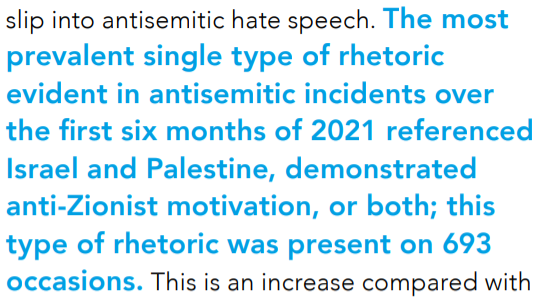A Guardian article by Ben Quinn (“Social media ‘bringing antisemitic ideas to new generation’”, Oct. 13) cites a joint study by several anti-racist groups reporting that a new generation of users of social media platforms are being introduced to antisemitic conspiracy theories.
The report included the following:
The findings on online antisemitism comes against the backdrop of continued heightened concern about its impact on the streets and a number of prosecutions of far-right supporters on terror-related charges.
Britain’s Community Security Trust, which assists with the security of the Jewish community, said last month it had recorded 1,308 anti-Jewish hate incidents nationwide in the first half of this year, the highest total in the first half of any year.
The reporter’s suggestion that the record number of antisemitic incidents are connected to the “far-right” is extremely misleading. As the Guardian itself reported at the time of the CST’s publication, the spike was driven by a huge surge in antisemitic incidents in May during the war between Hamas and Israel.
The actual CST report was clear that the huge increase in expressions of anti-Jewish racism was driven by hatred of Israel.

Such incidents include a pro-Palestinian convoy which drove through a Jewish neighborhood in London shouting antisemitic abuse and threats:
Content warning: This article contains vulgar obscenities.
Via @gunnerpunnerhttps://t.co/9BaOqxuL8a pic.twitter.com/MoDBSXrDIp
— Jewish News (@JewishNewsUK) May 16, 2021
Of these total incidents, CST noted, the largest group of offenders (when a description of the ethnic appearance of the offender was provided) were Muslim (Arab and North African), who were responsible for 51% of the total incidents, despite the fact that these groups make up a very small percentage of the British population. In other words, the take-away by most Guardian readers on the white and ‘right-wing’ nature of the antisemitism problem in the UK is contradicted by the data.
As we’ve argued previously, those reporting on antisemitism fall into two categories — those willing to follow the evidence wherever it leads, and those unwilling to do so if it leads to politically inconvenient places. As our posts over the past 12 years have demonsrated, the Guardian – among the largest purveyors of anti-Israel news and commentary in the world – consistently falls into the latter group.




